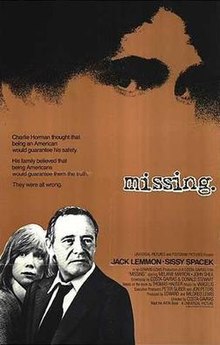
Mary Elizabeth "Sissy" Spacek is an American actress. She is the recipient of numerous accolades, including an Academy Award, three Golden Globe Awards, a Screen Actors Guild Award, and nominations for four BAFTA Awards, three Primetime Emmy Awards, and a Grammy Award. Spacek was honored with a star on the Hollywood Walk of Fame in 2011.
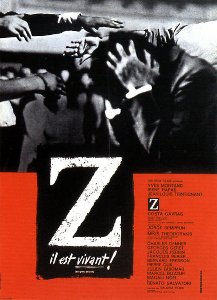
Z is a 1969 political thriller film directed by Costa-Gavras, from a screenplay he co-wrote with Jorge Semprún, adapted from the 1967 novel of the same name by Vassilis Vassilikos. The film presents a thinly fictionalized account of the events surrounding the assassination of the democratic Greek politician Grigoris Lambrakis in 1963. With its dark view of Greek politics and its downbeat ending, the film captures the director's outrage about the junta that then ruled Greece. The title refers to a popular Greek protest slogan meaning "he lives," in reference to Lambrakis.
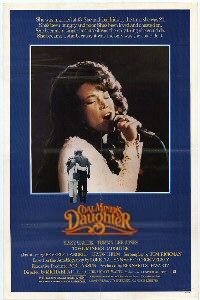
Coal Miner's Daughter is a 1980 American biographical musical film directed by Michael Apted from a screenplay written by Tom Rickman. It follows the story of country music singer Loretta Lynn from her early teen years in a poor family and getting married at 15 to her rise as one of the most influential country musicians. Based on Lynn's 1976 biography of the same name by George Vecsey, the film stars Sissy Spacek as Lynn. Tommy Lee Jones, Beverly D'Angelo and Levon Helm are featured in supporting roles. Ernest Tubb, Roy Acuff, and Minnie Pearl make cameo appearances as themselves.

Charles Edmund Lazar Horman was an American journalist and documentary filmmaker. He was executed in Chile in the days following the 1973 Chilean coup d'état led by General Augusto Pinochet, which overthrew the socialist president Salvador Allende. Horman's death was the subject of the 1982 Costa-Gavras film Missing, in which he was portrayed by actor John Shea.

Konstantinos "Kostas" Gavras, known professionally as Costa-Gavras, is a Greek-French film director, screenwriter, and producer who lives and works in France. He is known for political films, such as the political thriller Z (1969), which won an Academy Award for Best Foreign Language Film, and Missing (1982), for which he won the Palme d'Or and an Academy Award for Best Adapted Screenplay. Most of his films have been made in French, but six of them were made in English.
United States intervention in Chilean politics started during the War of Chilean Independence (1812–1826). The influence of United States in both the economic and the political arenas of Chile has since gradually increased over the last two centuries, and continues to be significant.

Yol is a 1982 Turkish film directed by Şerif Gören and Yılmaz Güney. The screenplay was written by Güney, and directed by his assistant Gören, as Güney was in prison at the time. Later, after Güney escaped from Imrali prison, he took the negatives of the film to Switzerland and later edited it in Paris.
Boris Weisfeiler was a Soviet-born mathematician and professor at Penn State University who lived in the United States before disappearing in Chile in 1985. Declassified US documents suggest a Chilean army patrol seized Weisfeiler and took him to Colonia Dignidad, a secretive Germanic agricultural commune set up in Chile in the 1960s. During the Chilean Pinochet military dictatorship Boris Weisfeiler allegedly drowned. He is known for the Weisfeiler filtration, Weisfeiler–Leman algorithm and Kac–Weisfeiler conjectures.
Thomas C. Hauser is an American author known for his biographies and novels.

The 28th Cannes Film Festival was held from 9 to 23 May 1975. The Palme d'Or went to the Chronique des Années de Braise by Mohammed Lakhdar-Hamina. In 1975, a new section, "Les Yeux fertiles", which was non-competitive, was introduced. This section, along with sections "L'Air du temps" and "Le Passé composé" of the next two years, were integrated into Un Certain Regard in 1978.
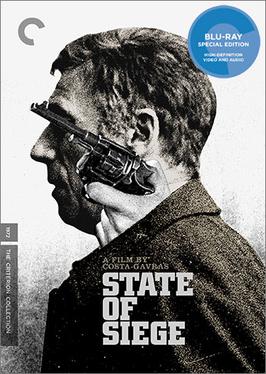
State of Siege is a 1972 French–Italian–West German political thriller film directed by Costa-Gavras starring Yves Montand and Renato Salvatori. The story is based on an actual incident in 1970, when U.S. official Dan Mitrione was kidnapped and later killed by an urban guerilla group in Uruguay.
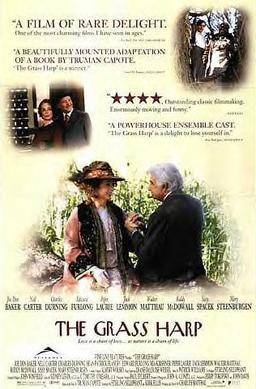
The Grass Harp is a 1995 American comedy-drama film based on the novella by Truman Capote. The screenplay, which was the final work of Oscar-winning screenwriter Stirling Silliphant, was adapted for the film. Directed by Charles Matthau, the film features a cast including Piper Laurie, Sissy Spacek, Walter Matthau, Jack Lemmon, Edward Furlong, and Nell Carter. Piper Laurie won the Best Supporting Actress award from the Southeastern Film Critics Association for her performance in the film.
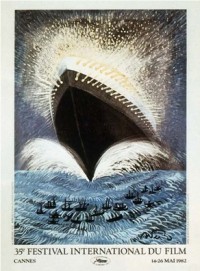
The 35th Cannes Film Festival was held from 14 to 26 May 1982. The Palme d'Or was jointly awarded to Missing by Costa Gavras and Yol by Şerif Gören and Yılmaz Güney.

Tina Romero is an American actress. A native of New York City, Romero moved to Mexico in her youth, and later established a career there as an actress. Her early film roles included The Divine Caste (1973) and the title character in the horror film Alucarda (1977). She has also appeared in American films, including Missing (1982), opposite Sissy Spacek and Jack Lemmon.
Frank Teruggi, Jr. (1949–1973) was an American student, journalist, and member of the Industrial Workers of the World, from Chicago, Illinois, who became one of the victims of General Augusto Pinochet's military shortly after the September 11, 1973 Pinochet coup d'état against Socialist President Salvador Allende.
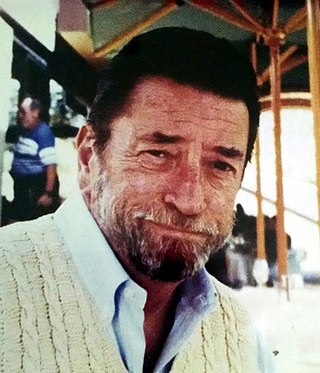
Donald E. Stewart was an American screenwriter, best known for his screenplay for Missing, which won the Academy Award for Best Adapted Screenplay, the Writers Guild of America Award, the London Film Critics' Circle award, a Christopher Award, (www.christophers.org) and the BAFTA Award for Best Screenplay, all shared with the film's director, Costa-Gavras.
Elizabeth Dorothy Horman was an American fine-artist. She was also known as the wife of businessman Edmund Horman, and the mother of Charles Horman, a journalist who was killed in Chile in 1973. The events of her son's death were chronicled in the 1982 film Missing.
Joyce Marie Horman is an American human rights activist. She is known as the wife of journalist Charles Horman, who went missing in 1973 while the couple was living in Santiago, Chile. Her search for what happened to him was chronicled in the 1982 film Missing, in which she was portrayed by Sissy Spacek. Spacek was nominated for an Academy Award for her performance as Horman. Her family's story was first told in the 1978 book by Thomas Hauser titled The Execution of Charles Horman: An American Sacrifice.
Edmund C. Horman was an American businessman who flew to Chile in 1973 in search of his son, Charles Horman, knowing that soldiers had seized him, but unaware that he had been shot dead by the Chilean military forces under General Augusto Pinochet, during their coup against President Salvador Allende.

Sam & Kate is a 2022 American comedy film written and directed by Darren Le Gallo, and starring Dustin Hoffman, Sissy Spacek, Jake Hoffman and Schuyler Fisk. It is Le Gallo's feature-film directorial debut, and his wife, Amy Adams, served as an executive producer. Hoffman's real son and Spacek's real daughter play these roles in the film.
